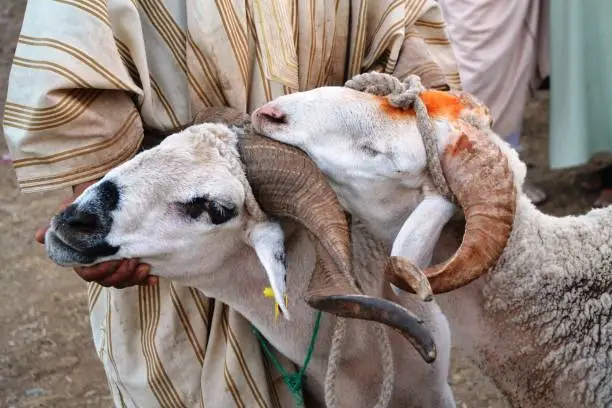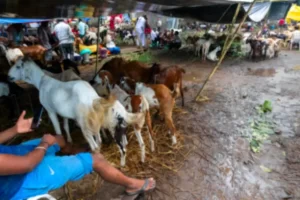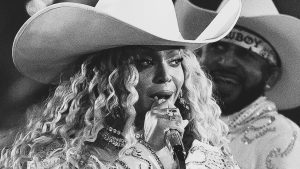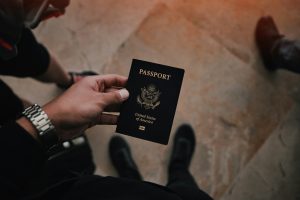“Eid ram prices in Nigeria soar, leaving families struggling ahead of celebrations”
3 min read
Soaring inflation dims Eid celebrations in Nigeria as families struggle to afford traditional ram sacrifices.
Nigerians Struggle to Afford Rams for Eid as Soaring Inflation Casts a Shadow on Celebrations
As Muslims prepare for Eid al-Adha, many Nigerian families are struggling to cope with the rising cost of rams. Eid ram prices in Nigeria have surged due to inflation, dampening the spirit of celebration.
As Eid al-Adha approaches, many Muslim families in Nigeria are facing an increasingly bitter reality — the cherished tradition of sacrificing a ram during the holy celebration is slipping beyond reach due to the country’s deepening economic crisis.
In Kara, Ogun State — one of Nigeria’s largest and most well-known ram markets — the usual festive buzz that precedes Eid has been replaced with silence and worry. Ram sellers sit idly beside unsold livestock, and buyers who once came in droves now browse hesitantly, often leaving empty-handed.
The culprit? Skyrocketing inflation, driven by a worsening cost-of-living crisis that has plagued the country since 2023, when President Bola Tinubu’s administration introduced sweeping fiscal reforms.
Traditionally, Eid al-Adha is marked by the sacrifice of an animal — usually a ram — in remembrance of Prophet Ibrahim’s willingness to sacrifice his son in obedience to God. In Nigeria, this ritual is both a religious duty and a powerful symbol of faith, gratitude, and community. But for many this year, it’s a luxury they can no longer afford.
“The ram that I bought personally around, let’s say, 200,000 naira ($127) last year — this year, we start negotiating from 600,000 naira ($380),” said Abiodun, a Nigerian who returned from London to celebrate the holiday with his family. “It’s disheartening. Families are being forced to choose between tradition and survival.”
This sharp increase has effectively priced out thousands of Nigerians, particularly those in middle- and lower-income brackets. Ram prices have doubled — and in some cases, tripled — within a year. Sellers say the problem is not only inflation but the ripple effects of increased fuel prices, transport costs, and a weakened naira.
Jaji Kaligini, a veteran ram trader who has worked in Kara for over two decades, said this is the worst season he’s ever seen.
“Everyone is suffering, and we don’t know what to do,” Kaligini said, shaking his head as he pointed to unsold rams standing idly in their pens. “People want to buy, but they can’t. Even those who used to buy two or three rams now can’t even afford one.”
For traders like Kaligini, the impact is devastating. Many have taken loans in anticipation of Eid sales and are now unsure how they will repay them. The once lucrative business has turned into a high-risk gamble.
The situation reflects a broader economic malaise. Since taking office in May 2023, President Tinubu has implemented bold economic reforms — including the removal of fuel subsidies and the unification of exchange rates. While these policies were intended to stabilize the economy in the long run, they have had a severe short-term impact, particularly on ordinary Nigerians.

The annual inflation rate is now above 23%, with food inflation reaching even higher levels. The naira has depreciated significantly against the dollar, and basic goods and services are becoming increasingly unaffordable. Experts warn that if urgent measures aren’t taken to cushion the impact on everyday citizens, the country’s economic inequality could deepen further.
For Muslims across the country, the pain of this economic squeeze is being felt most deeply during what should be a time of spiritual renewal and celebration.
“I’ve been celebrating Eid my whole life with a ram sacrifice,” said Ibrahim, a father of four from Lagos. “This year, I told my children we may just pray and cook rice. It’s heartbreaking, but what can we do?”
Some religious scholars are encouraging families to focus on the essence of Eid — prayer, charity, and community — rather than the animal sacrifice, which is only obligatory for those who can afford it without hardship.
But for many Nigerians, the inability to fulfill this deeply rooted tradition feels like yet another reminder of how far the economy has fallen — and how difficult everyday life has become.
As the holy festival draws near, the hope remains that the nation’s leaders will find ways to ease the burden on ordinary citizens, and that next year’s celebrations will bring not only joy, but renewed economic relief.







